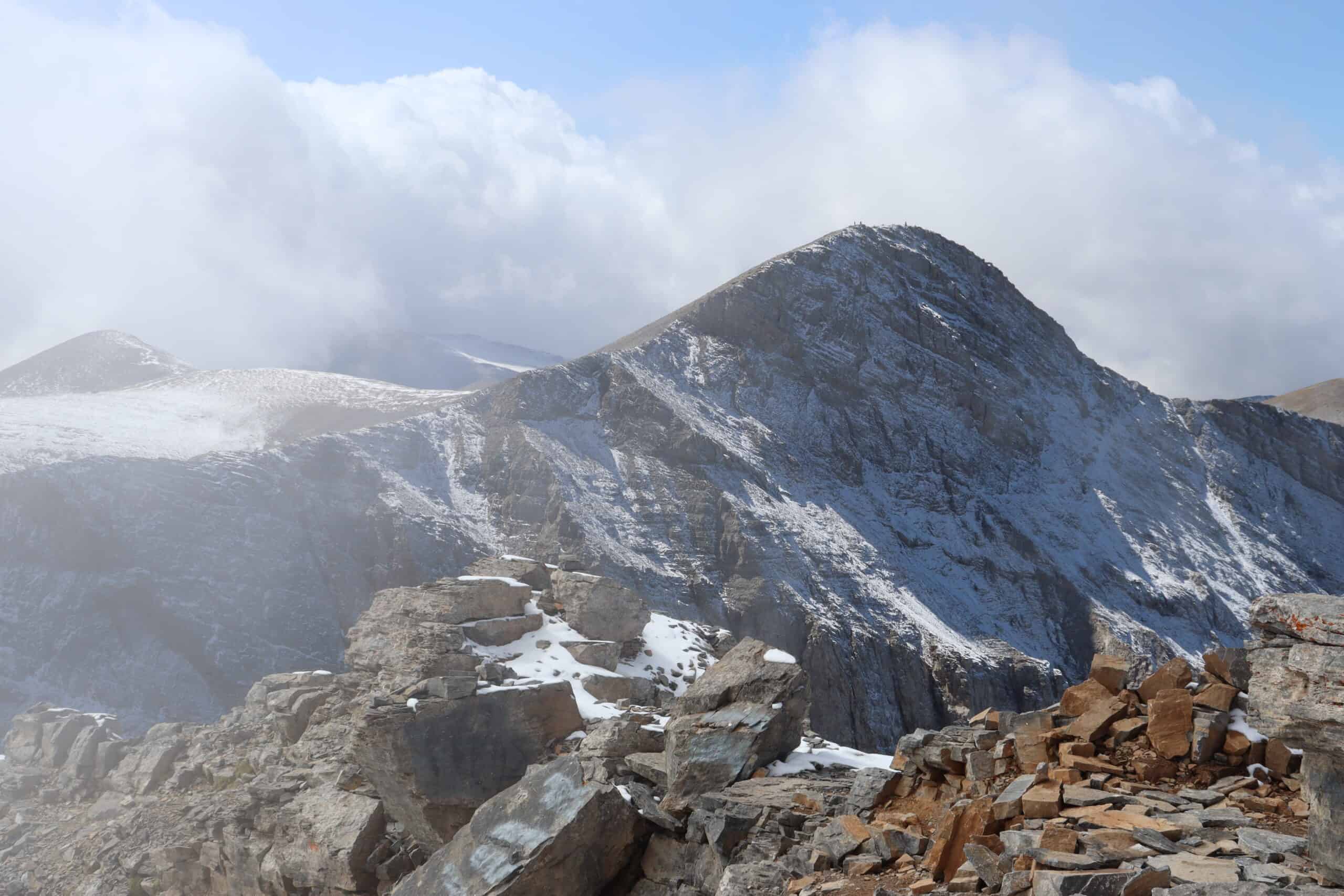Does It Snow In Greece? Full Winter Travel Guide
So, does it snow in Greece?
Nestled in the southeastern part of Europe, Greece is a country that captivates visitors with its rich history, diverse landscapes, and stunning coastlines. From the ancient ruins of Athens to the picturesque islands of Santorini and Mykonos, Greece offers a myriad of travel experiences.
The country’s geography is marked by its proximity to water, as Greece is surrounded by the Aegean, Ionian, and Mediterranean Seas. This coastal location gives rise to a Mediterranean climate, characterized by hot, dry summers and mild winters. However, do not be deceived by the warm climate, as certain parts of Greece do experience snowfall during the winter months.
If you are seeking a winter adventure in Greece, this guide will help you plan the perfect trip. Discover the ideal time and place to find snow, explore the best ski resorts, and get a regional breakdown of the winter conditions.
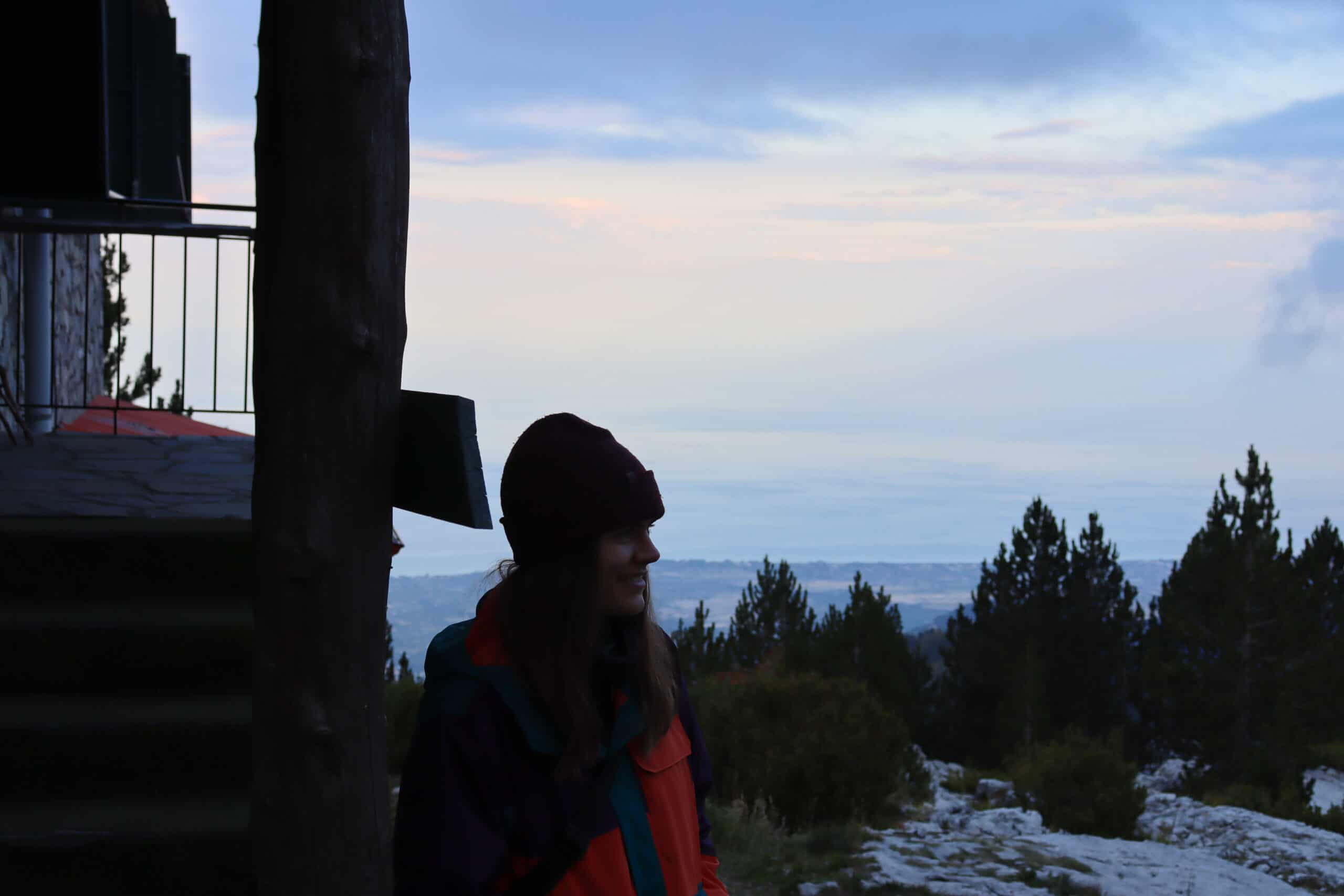
Does It Snow In Greece?
Yes, it does snow in Greece, but not everywhere. The Greek Islands and coastal areas tend to have mild and rainy winters. Whereas more inland and higher altitudes can experience colder weather.
Mountainous regions such as the Pindus and the Rhodope range witness regular snowfall during winter. Some areas, like the village of Florina near the Greek-North Macedonia border, receive heavy snowfall and can be completely covered in white.
Snow can happen anytime in Greece from November to April, with the peak snowfall months usually being December, January, and February. But as with any weather, it can be unpredictable, so it is always best to check the forecast before planning your trip.
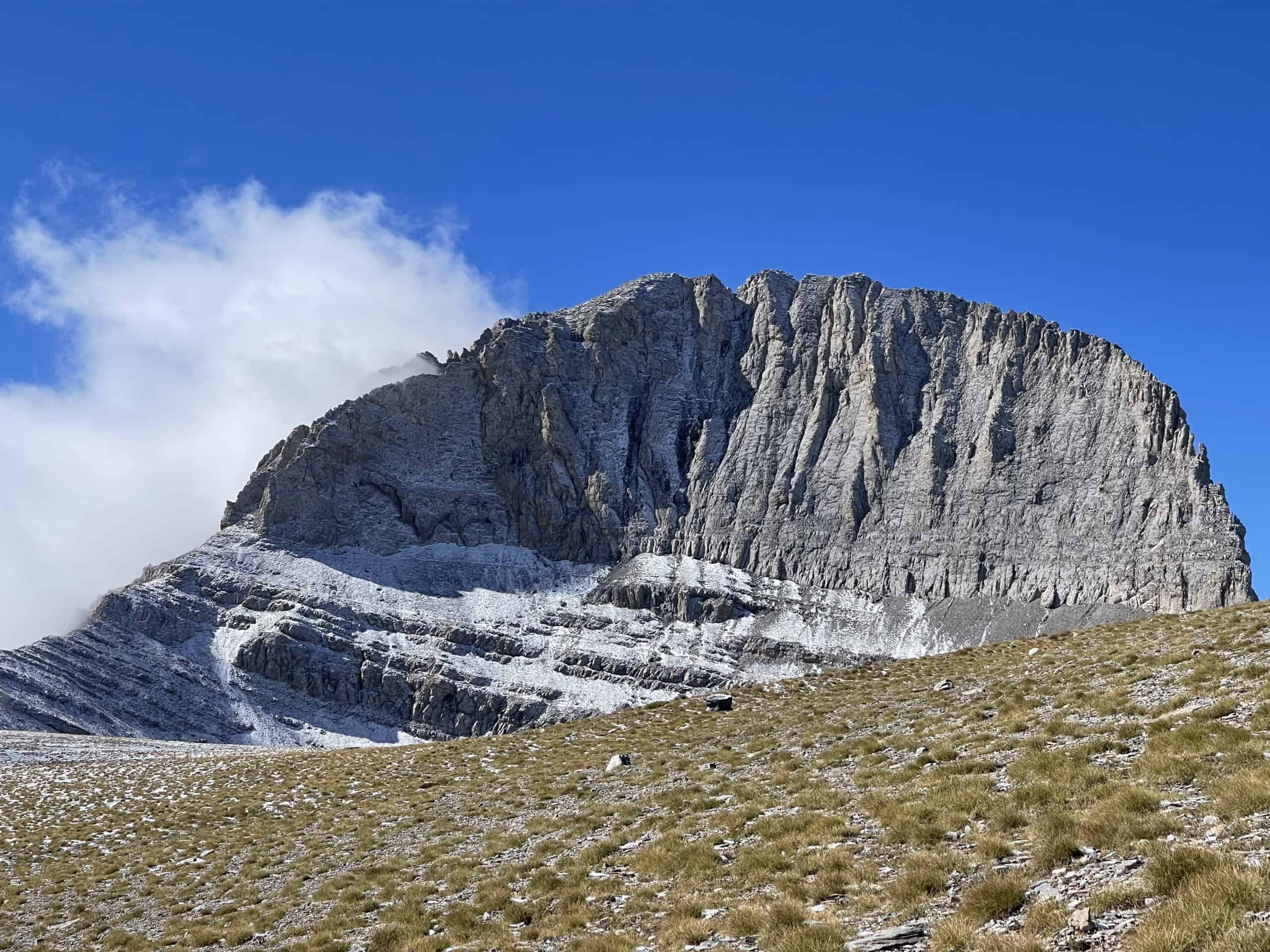
Where Does It Snow In Greece
The geographical diversity of the country largely influences the snowfall in Greece. From the snow-capped mountains of the mainland to the milder weather of the islands, there are several places where you can find snow. In the following section, we explore the four regions of this nation and where you can go to witness this winter phenomenon.
Northern Greece
This will be the best region to visit if you want to experience snow in Greece. The Pindus Mountain range, which spans across Northern Greece and Albania, is high enough to have consistent snowfall.
Villages such as Florina will have around 25 days of snow and up to 49 centimeters of total accumulation per winter season. The average winter temperature range for this region is -3ºC to 11ºC (27ºF to 52ºF).
Central Greece
During the winter season, Central Greece experiences a moderate drop in temperature. While this region may have a less snowy winter than the north, you will still be able to find some snow here.
Athens can be found in this region and typically has around 25 days of snow and a total accumulation of 15 centimeters of snow. The average winter temperature in this region tends to be 6ºC to 13ºC (43ºF to 55ºF).
Southern Greece
As expected, Southern Greece does not get much snow during winter. However, the Peloponnese peninsula, located in the southern part of the mainland, can occasionally see some snowfall.
The frequency of snowfall is rare, typically happening only once or twice during the season. When it does snow, the accumulation is often not more than 1-2 centimeters. The average winter temperature in this region ranges from 8ºC to 17ºC (46ºF to 63ºF).
Islands Of Greece
Although a popular destination for tourists, the Greek Islands are not known to get much snow. But some of the higher elevation islands, such as Crete and Rhodes, have a small chance of seeing snow during the winter months.
On these islands, you might expect one or two instances of snowfall during the winter season, with accumulation rarely exceeding a centimeter. The average winter temperature in this area is a mild 9ºC to 20ºC (48ºF to 68ºF).
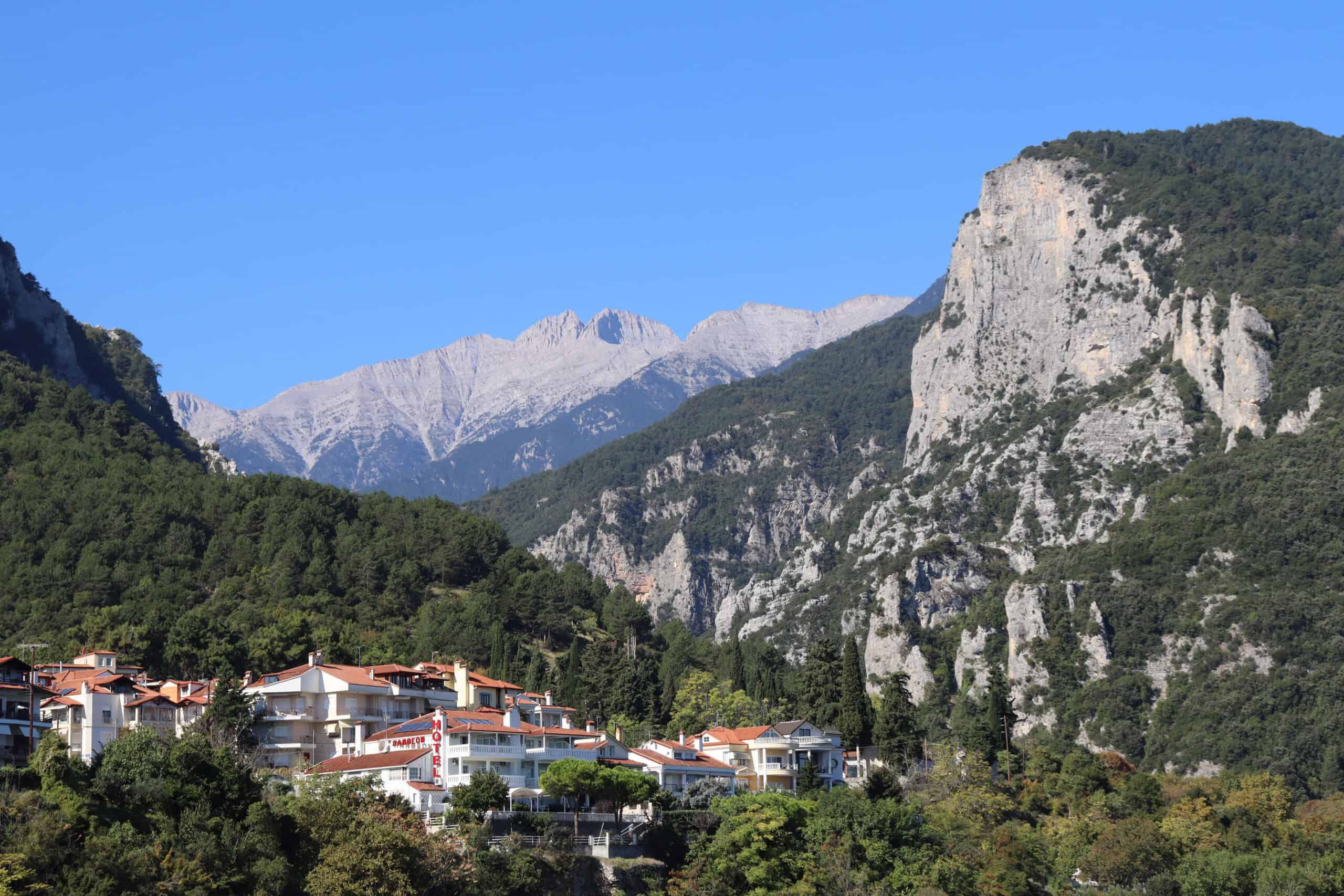
Best Ski Resorts In Greece
To truly embrace the beauty of snow in Greece, winter sports enthusiasts can indulge in the thrill of visiting one of the country’s numerous ski resorts. Nestled amidst majestic mountain ranges, these ski resorts offer a perfect blend of stunning natural landscapes, world-class skiing facilities, and warm Greek hospitality.
Imagine gliding down pristine slopes, surrounded by breathtaking panoramic views of snow-capped peaks and lush forests. Whether you are a seasoned skier or a beginner eager to learn, Greece’s ski resorts cater to all skill levels, ensuring an unforgettable winter getaway.
Among them, four popular choices are Parnassos Ski Centre, Kalavrita Ski Center, Vasilitsa Ski Center, and Elatochori Ski Center each offering a unique blend of beauty and adventure.
Parnassos Ski Centre
Address: Arachova 320 04, Greece
Parnassos Ski Centre, nestled amidst breathtaking scenery, offers not only stunning views but also exceptional skiing conditions. With its expansive slopes and state-of-the-art facilities, this renowned ski resort is the largest in Greece.
Whether a beginner or an experienced skier, Parnassos Ski Centre caters to all levels of expertise, ensuring a memorable experience. From gentle slopes for the little ones to challenging terrains for the thrill-seekers, there is something for everyone to enjoy in this winter paradise.
Kalavrita Ski Center
Address: Χελμός, Kalavrita 250 01, Greece
Kalavrita Ski Center is not just a winter sports destination, but a historical location with a unique charm. It is situated on the slopes of Mount Helmos, a place known for its rich history and stunning natural beauty.
The resort stands out for its advanced ski facilities, a diverse range of slopes, and a breathtaking view of the Gulf of Corinth. Additionally, it offers a wide range of activities beyond skiing, such as snowboarding, sledding, and even snowmobile rides.
Vasilitsa Ski Center
Address: Grevena Municipality 510 32, Greece
Vasilitsa Ski Center is situated in the pristine Pindus National Park. Here you will find slopes catering to all skill levels and off-piste skiing areas for thrill-seekers.
Vasilitsa’s dedication to preserving the environment while delivering an exhilarating skiing experience sets it apart. The resort has also been awarded for its eco-friendly practices, making it a popular choice among environmentally-conscious skiers.
Elatochori Ski Center
Address: Elatochori 601 00, Greece
The Elatochori Ski Center is tucked away in the Pieria Mountain range, offering ski rentals, a ski school, and slopes to cater to varying skill levels.
Its distinctive charm lies in its proximity to the mythical Mount Olympus. While skiing, you can catch glimpses of the ancient gods’ home and stunning views of the Thermaic Gulf.
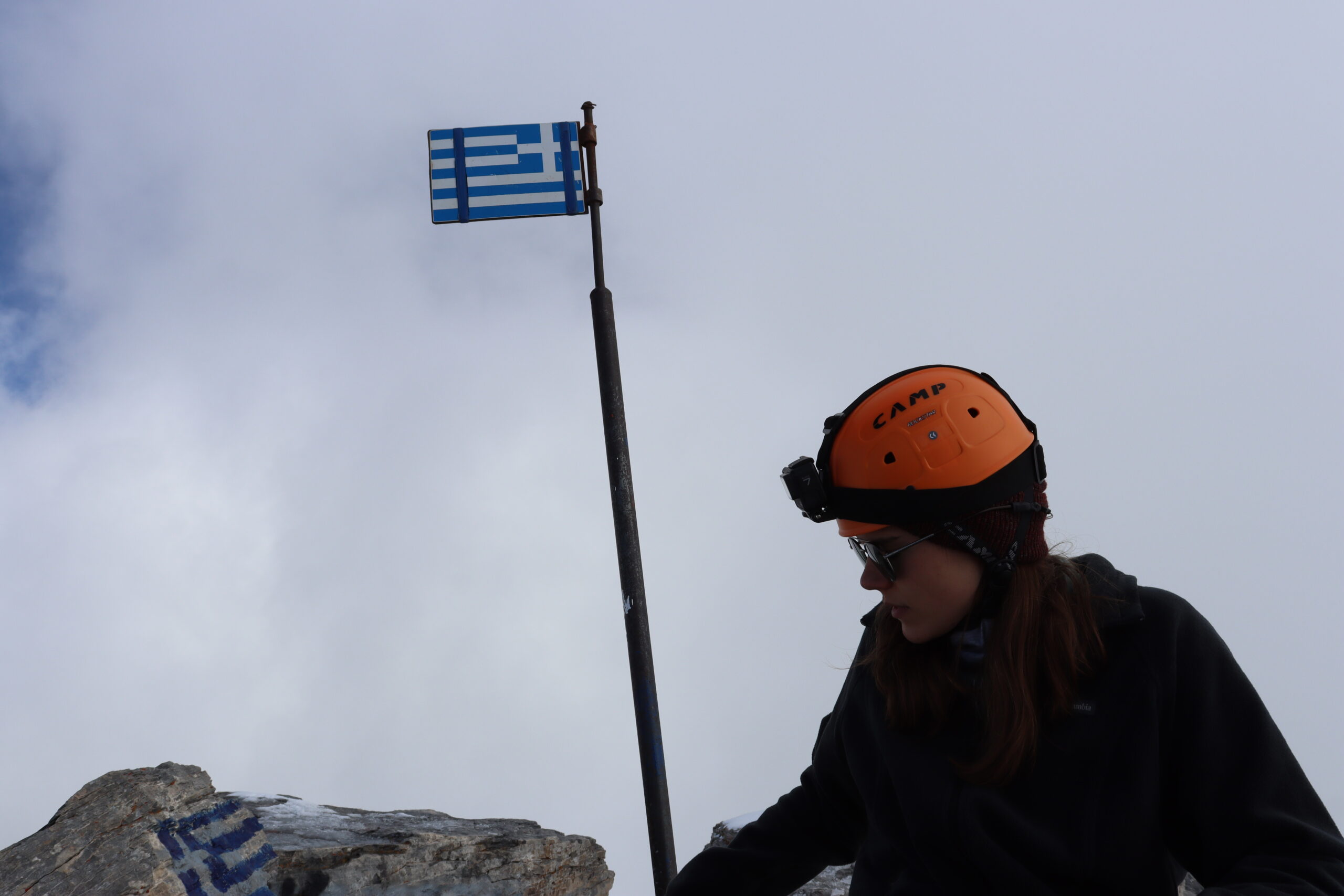
Winter Conditions In Greece
The winter conditions in Greece may not be extreme but they can still be quite cold. Conditions can vary each month of the winter season, but you can expect temperatures to range from 0-10°C (32-50°F) in most areas. The coldest months are January and February, with a high chance of snowfall in Northern Greece.
How Often Does It Snow In Greece?
From December to February, Greece experiences snowfall approximately once a week on average, though not in heavy amounts. Typically, the volume per snowfall ranges between 2-5 centimeters, enough for a light dusting.
However, in certain areas such as around Mount Olympus and other mountainous regions, snowfall can be more substantial. In these regions, snowfall can last for several days and accumulate to a thickness of up to 1-2 meters.
Factors That Impact Snow In Greece
Geographical Location: The geographical location plays a crucial role in determining the likelihood and intensity of snowfall. The northern and central parts of mainland Greece are more likely to experience substantial snowfall than the southern regions and islands.
Elevation: The altitude of an area is another critical factor. Higher altitudes, like Mount Olympus and other mountainous regions, are more prone to heavy snowfall due to the colder temperatures at these higher elevations.
Climate Patterns: Global and regional climate patterns also significantly influence the amount and frequency of snow in Greece. In recent years, Greece has experienced warmer and drier winters due to the changing climate.
Tips For Winter Visits
Best Time: The ideal time for a winter visit to Greece would be between December and February when the country gets the most snow. Travel during December to discover Greece’s beautiful Christmas markets and festivities. January and February are perfect for winter sports like skiing and snowboarding.
Clothing: Packaging various layers is recommended to ensure comfort and warmth during your visit. Including a warm coat, gloves, a hat, thermal wear, and sturdy waterproof boots. The snowfall is not constant throughout the winter season, so it is best to keep an eye on weather forecasts and plan outdoor activities accordingly.
Activities: Winter is a unique time to visit Greece and experience its beauty differently. Apart from skiing and snowboarding, there are many other winter activities available such as snowshoeing, mountaineering, and ice skating. You can also visit some of Greece’s famous historical and cultural sites without the crowds that are present during peak tourist seasons.
Food: Winter is an excellent time to indulge in traditional Greek cuisine, with many dishes featuring hearty ingredients. Some popular winter dishes include revithada (chickpea stew), fasolada (bean soup), and moussaka (baked eggplant dish). Warm up with a cup of traditional Greek coffee or hot chocolate, and try pairing it with the famous melomakarona or kourabiedes cookies.
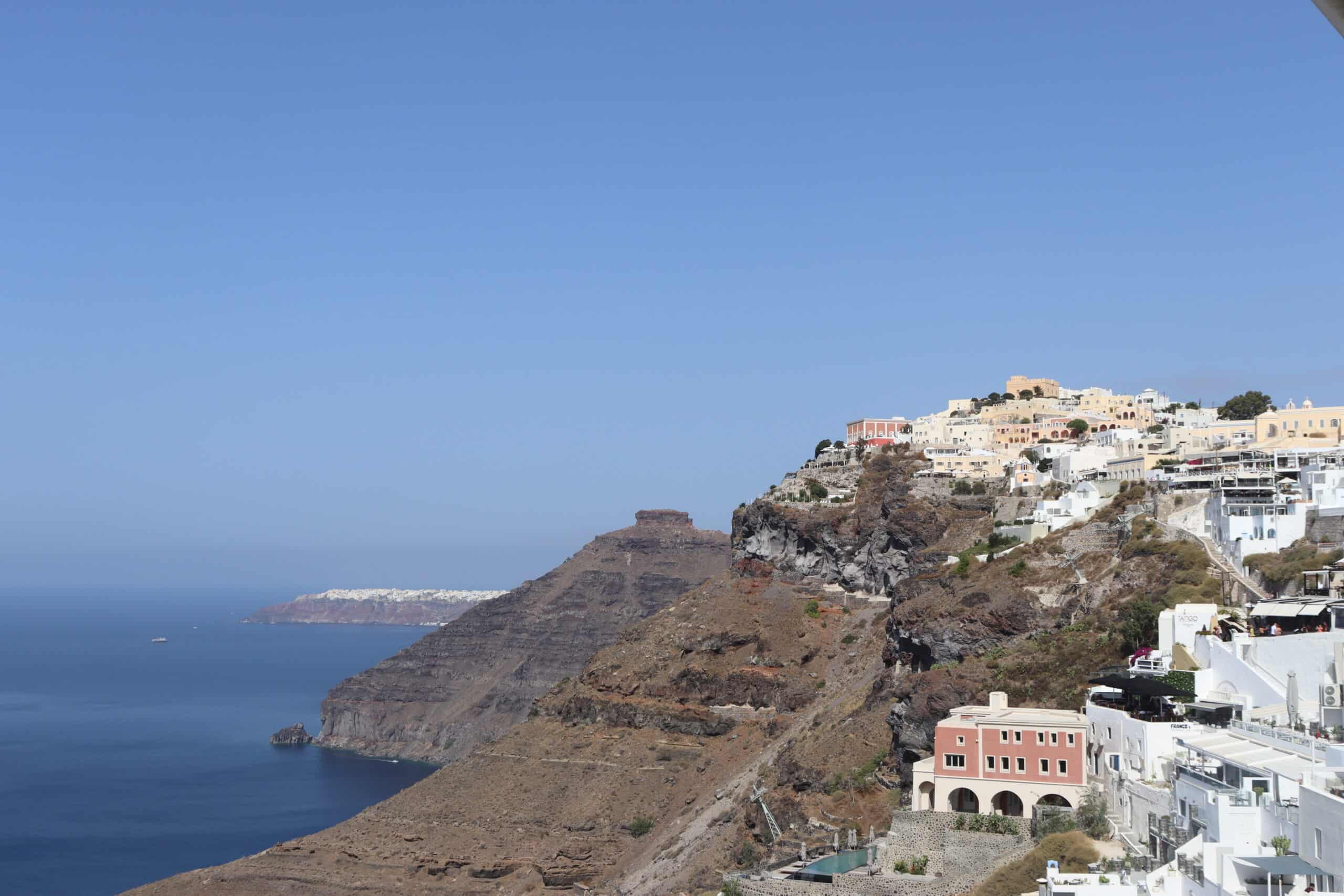
Does It Snow In Greece: FAQs
There is often curiosity surrounding the possibility of snow in Greece. Here are a few frequently asked questions.
Does Greece Have 4 Seasons?
Yes, Greece experiences all four seasons, making it a great country to visit all year round, as each season offers its own unique experiences and activities.
Spring in Greece is a delightful season with vibrant wildflowers, comfortable temperatures, and ideal conditions for outdoor activities like hiking and sightseeing. It is also a great time to experience traditional Greek Easter celebrations.
Greece’s summer is renowned for its sun-drenched beaches and crystal-clear, warm waters. But, it is worth noting that summertime attracts a large number of tourists, with temperatures soaring and beaches becoming very crowded.
In Greece, the arrival of fall brings a magnificent transformation of the landscape, painting it with vibrant colors. The perfect season for wine enthusiasts, as this is the time of year grape harvests take place, with many food festivals honoring Greece’s exceptional culinary heritage.
How Cold Is Greece In Winter?
Throughout the winter, Greece experiences a wide range of temperatures across the nation, showcasing a diverse climate.
The Northern and Central regions tend to get temperatures ranging from 5-10°C (41-50°F). While the Southern regions and the Greek Islands, have milder temperatures averaging around 15°C (59°F).
However, it is common to experience days with temperatures below freezing in mountainous areas. Greece’s ski resorts provide a winter wonderland for skiing and snowboarding enthusiasts, amidst breathtaking landscapes.
Has Greece Ever Gotten Snow?
Yes, Greece does get snow, particularly in its mountainous regions. While it is a rare sight in lower altitudes and coastal areas, during the winter months, the higher elevations frequently witness a beautiful snowy blanket.
Even in regions where snow is a rare occurrence, it is not unusual for most areas of Greece to experience snowfall at least once every few years.
Does It Snow In Greece Athens?
Yes, while it is a rare occurrence, the bustling capital of Greece does experience snowfall. The sight of the iconic Acropolis coated in a dusting of snow provides a unique and breathtaking spectacle.
However, due to its Mediterranean location, Athens generally enjoys mild winters with temperatures usually staying above freezing, even in the coldest months. So, while snow can happen, it is not a common sight.
It is important to note though, that in the rare instances where it does snow in Athens, the city is not well-equipped to handle it, which can lead to temporary disruptions in public transportation and other services.
Does It Snow In Greece Santorini?
Santorini, the jewel of the Aegean, is not typically associated with snowfall. Being an island, its climate is heavily influenced by the surrounding sea, resulting in mild, wet winters and virtually no snow.
However, it is not entirely impossible. During rare but extremely cold periods, Santorini might witness a light dusting of snow. However, winter in Santorini is usually snow-free, making it an ideal off-season destination for those who wish to escape the winter cold.
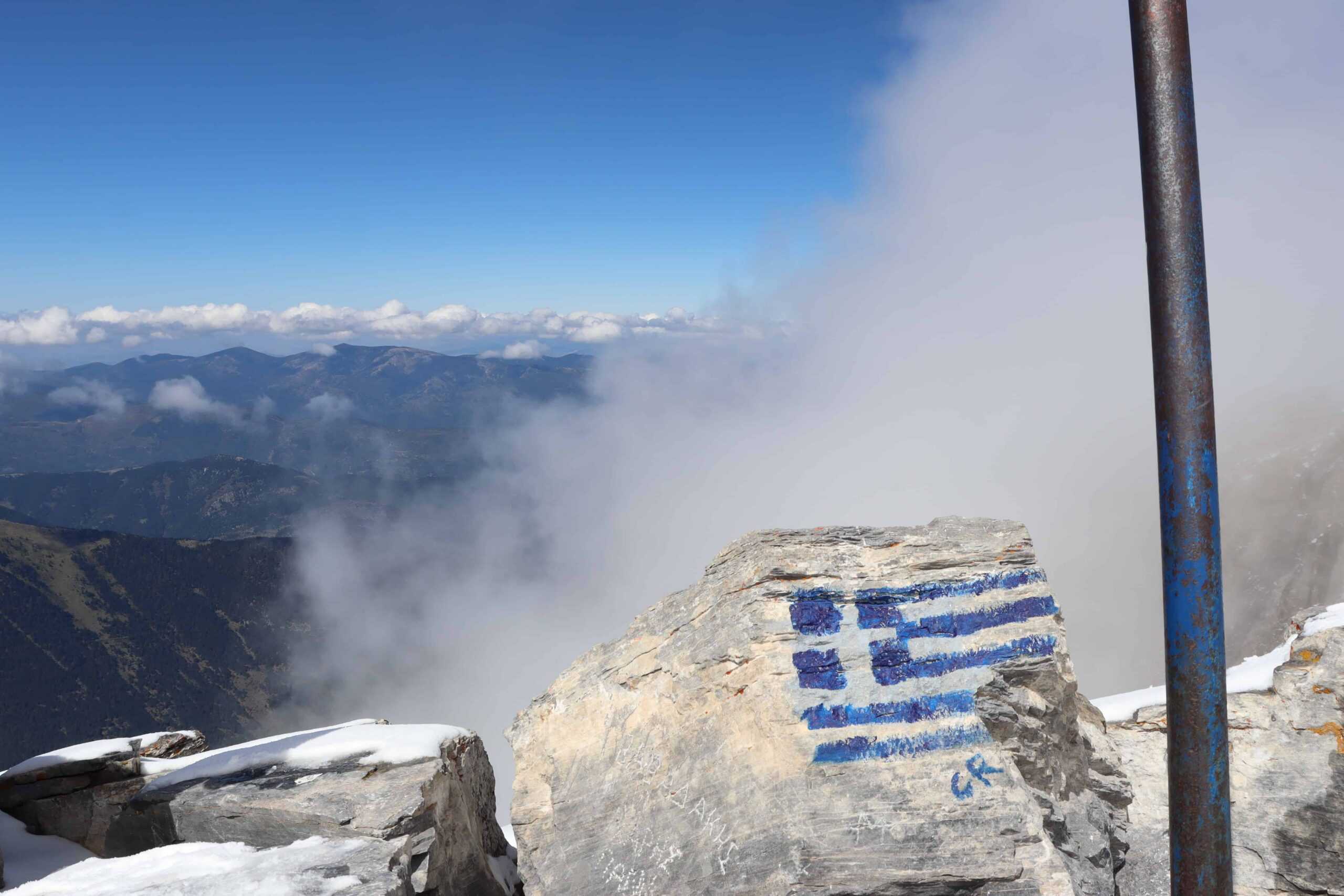
Final Thoughts: Does It Snow In Greece?
Greece may not be known for its snowy landscapes, but it is not unheard of either. Places like Athens sometimes get snow, creating an interesting effect on the ancient monuments. But the island of Santorini hardly ever gets snow, so it is a perfect winter escape if you prefer milder weather.
Despite its reputation as a sun-soaked paradise, Greece’s winter has its quiet charm. The rare sight of snow dusting the ancient and modern landscapes provides a unique opportunity to see the nation in a new way. So, if you are up for an unusual winter destination, Greece might just surprise you.
Remember, wherever you choose to go, it is always essential to check the local weather and prepare accordingly. Whether you are exploring the snowy hills or enjoying a mild winter day by the Aegean Sea, Greece is a country that never ceases to amaze.
